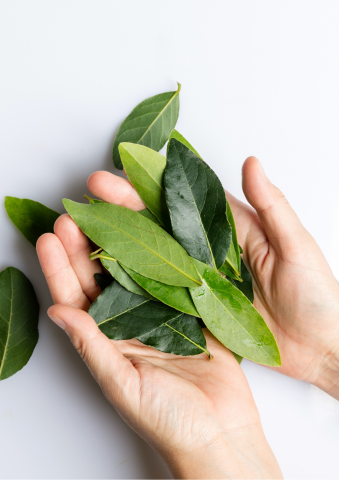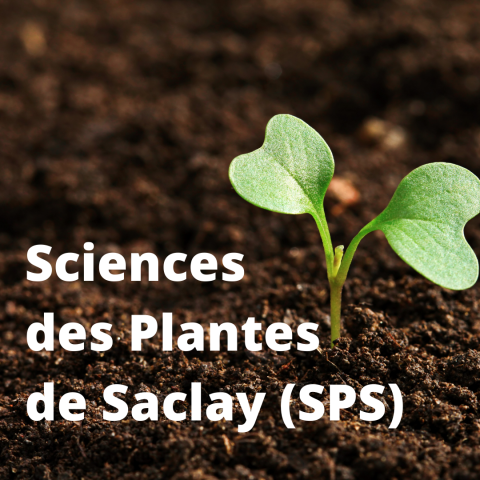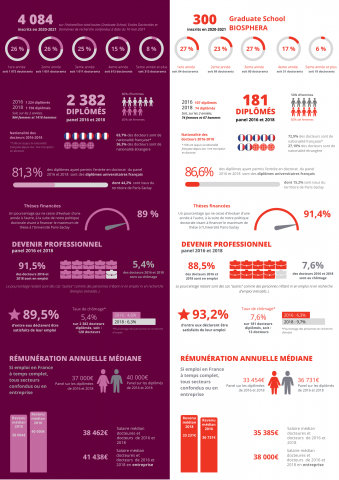
PhD PROGRAM BIOSPHERA - GRADUATE SCHOOL BIOSPHERA
Within Université Paris-Saclay, GS BIOSPHERA offers a diversified training to meet the multiple challenges of the living world and our societies. Numerous disciplines are called upon to study Life, its evolution, natural or in response to various disturbances and its adaptive capacities. BIOSPHERA brings together two main doctoral schools that are complementary in terms of the research themes they address: Doctoral Schools SEVE and ABIES.
Biology / Health / Society / Ecology & Environment / Resources / Agriculture & Food / Plant / Ecology / Evolution
Program content
| ED Agriculture, Food, Biology, Environment, Health (ABIES) | ED Plant Sciences : from Genes o Ecosystems (SEVE) |
Agriculture Food Biology Environment Health (ABIES)
ABIES is a thematic Doctoral School involved in the fields of agriculture and environmental sciences, food process sciences, life and health sciences, economic and social sciences applied to agriculture, food and environment. ABIES offers and claims a pluridisciplinary context and welcome an important number of interdisciplinary PhD projects.
Learn more about ABIES doctoral school
Plant Sciences: from genes to ecosystems (SEVE)
The Doctoral School “Plant Sciences : from gene to ecosystem” offers graduates from biology and agronomy studies training in and through research in the vast interdisciplinary field of plant research (and beyond, by integrating other non-plant biological models). These studies extend from the gene to the ecosystem, and use the concepts and tools of biochemistry, biophysics, imaging, molecular biology, genetics, genomics, cell biology, modelling and bioinformatics.
Paris-Saclay laboratories in connection with ED ABIES
- UMR 8079 Ecologie Systématique et Evolution ESE
- UMR 8568 Centre international de recherche sur l'environnement et le développement UMR CIRED
- UMR 1290 BIOlogie GEstion des Risques en agriculture BIOGER
- UMR 1402 Ecologie fonctionnelle et écotoxicologie des agroécosystèmes Ecosys
- UMR 0210 Economie Publique ECOPUB
- UMR 1313 Génétique Animale et Biologie Intégrative GABI
- UMR 8120 Génétique Quantitative et Evolution - Le Moulon GQE - Le Moulon
- UMR 1318, ERL 3559 Institut Jean-Pierre Bourgin IJPB
- UPR 1404 Mathématiques et Informatique Appliquées du Génome à l'Environnement MaIAGE
- UMR 1319 MICrobiologie de l'ALImentation au Service de la Santé Humaine MICALIS
- UMR 0791 Modélisation Systémique Appliquée aux Ruminants MoSAR
- UMR 1048 Sciences pour l'Action et le Développement : Activités, Produits, Territoires SADAPT
- UPR 1303 Alimentation et Sciences Sociales ALISS
- UMR 0892 Unité de recherche Virologie et Immunologie Moléculaires VIM
- UMR 0914 Physiologie de la Nutrition et du Comportement Alimentaire PNCA
- UPR 1461 PRocédés biOtechnologiques au Service de l’Environnement PROSE
- UPR 1460 Génie des Procédés FRIgorifiques pour la Sécurité alimentaire et l’Environnement FRISE
- UMR 1198 Biologie de la Reproduction, Environnement, Epigénétique, et Développement BREED
- UMR 0211 UMR Agronomie Agronomie
- UMR 9191 Evolution, génomes, comportement et écologie EGCE
- UMR 782 Paris-Saclay Food and Bioproduct Engineering SayFood
Paris-Saclay laboratories in connection the ED SEVE
- UMR 9191 Evolution, génomes, comportement et écologie EGCE
- UMR 8079 Ecologie Systématique et Evolution ESE
- UMR 1290 BIOlogie GEstion des Risques en agriculture BIOGER
- UMR 8120 Génétique Quantitative et Evolution - Le Moulon GQE - Le Moulon
- UMR 1318, ERL 3559 Institut Jean-Pierre Bourgin IJPB
- UMR 9213 Institut des Sciences des Plantes de Paris-Saclay IPS2
- UMR 9198 Institute for Integrative Biology of the Cell - DRF/JOLIOT I2BC
Paris-Saclay laboratories attached to the SPS competition
- UMR 1290 BIOlogie GEstion des Risques en agriculture BIOGER
- UMR 8120 Génétique Quantitative et Evolution - Le Moulon GQE - Le Moulon
- UMR 1318, ERL 3559 Institut Jean-Pierre Bourgin IJPB
- UMR 9213 Institut des Sciences des Plantes de Paris-Saclay IPS2
- UMR 9198 Institute for Integrative Biology of the Cell - DRF/JOLIOT I2BC
Laboratories outside Paris-Saclay
ABIES
- UMR 8586 Pôle de recherche pour l'organisation et la diffusion de l'information géographique PRODIG
- UMR 1392 Institut d'Ecologie et des Sciences de l'Environnement de Paris iEES
- Outils et processus d'intervention sur le paysage LAREP
- Experimental and Computational Methods for Modeling Cellular Processes inbio
- Unité de Génétique fonctionnelle de la souris
- IFPEN - IFP Energies Nouvelles
SEVE
- UMR8197 Institut de Biologie de l'École Normale Supérieure IBENS
- UMR 7141 Biologie du chloroplaste et perception de la lumière chez les micro-algues
- UMR 8226 Institut de Biologie Physico-Chimique IBPC
PhD students admitted to the Phd program will have a public law doctoral contract. The duration of the contract is 3 years. The contractual Phd students are full-time employees with the sole or main mission of carrying out their doctoral project. They may also be entrusted with complementary missions of teaching, scientific mediation, valorization or expertise.
Possible employers* for PhD students under contract to the program are :
- Université Paris-Saclay (Faculties of Sciences of Orsay, Medicine, Pharmacy, Sports Sciences and Law-Economy-Management)
- University of Versailles Saint Quentin en Yvelines
- University of Evry Val d'Essonne
- Centrale Supélec
- ENS Paris-Saclay
- AgroParisTech
- INRAE
- ENVA
* This list remains to be completed or specifie
ED SEVE
The PhD students of the ED SEVE are supported throughout their thesis via different actions aiming at ensuring a training through research of excellence and allowing them to acquire the scientific and professional skills expected from a PhD in biology.
This includes, for example:
- The organization of individual supervision committees
- The organization of scientific or professional doctoral training courses
- The setting up of a skills booklet allowing a self-assessment of the skills progressively acquired during the thesis
- Annual scientific days allowing exchanges and the construction of a professional network locally within the ED SEVE but also at a European level
- An individual and personalized supervision at each re-registration
And many other actions described on our website
https://www.universite-paris-saclay.fr/en/doctoral-schools/plant-sciences-genes-ecosystems#edit-group-deroulement
ABIES
An individual and personalized supervision is proposed to all the PhD students of the ED ABIES from the preparation of the thesis registration until several years after the defense, allowing them to develop to develop and enhance the scientific and transversal skills of the doctor.
This includes in particular :
- Annual individual interviews with a correspondent of the doctoral school management, starting before the Annual individual interviews with a correspondent of the doctoral school's management, beginning before the start of the thesis with a pre-registration interview for PhD students who do not take the ED competition, and a local contact for administrative procedures
- Annual individual supervision committees including a referent of the ABIES ED chosen among the ABIES volunteer supervisors
- A training offer in addition to the research activity allowing to acquire scientific and transversal scientific and transversal competences and a competences booklet specific to each doctoral student PhD student to summarize all the acquired skills
- Annual scientific days and a professional day, allowing to exchange with other PhD students and to open up their scientific and career horizons.
- Support for international mobility (annual budget of more than 10 000 euros)
- ED SEVE : The annual surveys allowing to supervise the future of the PhDs up to 5 years after their thesis indicate that the PhDs graduated from the ED SEVE pursue their career mainly by research CDD in France or abroad (post-doctoral internship - 45%), 15% integrate in the private research sectors including the creation of star-up, while 10% are recruited in permanent positions in academic research. The rest of our PhDs pursue their careers in different professional sectors (business consulting, secondary education, etc...).
- ABIES : The PhD students of the ABIES ED are encouraged during their thesis to explore the numerous career opportunities open to PhDs, notably during the annual Doc'Avenir day. A supervision of the professional future of the PhDs is carried out for 5 years after the defense. The last few years show an excellent professional integration with more than 95% in employment 3 years after the thesis, of which more than 60% are in permanent employment (except in 2020 due to the health situation). About 45% of the PhDs continue in academic research, including 27% with a permanent position and 10% in post-doctorate abroad. About 40% of ABIES PhDs are employed in the private sector, in R&D or in other sectors and 15% work in the public sector. Finally, a few PhDs develop their own company each year.
How to be admitted to the doctoral program BIOSPHERA via ABIES doctoral school ?
Find below the different steps to apply to the Biosphera Doctoral Program via the ABIES doctoral school: :
Prerequisite
The competition is open to anyone who has validated a Master's degree or equivalent before 1st October 2021.
How to apply ?
You need to contact the thesis supervisor of the subject you are interested in.
If the thesis supervisor has selected your application to take part in the competition, he will need to send to alexandre.pery@agroparistech.fr by the 20th May 2021 at the latest your application file as a single .pdf file consisting of:
- CV
- cover letter (in ABIES format)
- Transcript for Master 1 and 2
- Letters of support (not compulsory)
Jury
The jury is made up of the members of the council of the doctoral school, including doctoral candidates, reinforced by external scientists to ensure that there are experts for all the disciplines covered by all the PhD projects. The audition of each candidate lasts 25 minutes
- 10 minutes of presentation during which he must present his research path and the thesis project he is applying for and the adequacy between his profile and the PhD project.
- 15 minutes of discussion during which he will have to answer questions about his motivations, his scientific knowledge and the thesis subject he is applying for.

Calendar 2024 - Candidates
- Tuesday April 2, 2024
Deadline for project leaders to submit thesis proposals
Applications open - Wednesday May 7, 2024, midnight
Deadline for submission of application files in ADUM - Tuesday June 11 to Monday June 24, 2024
Hearings by the competition jury - June 4 to 6, 2024
Competition eligibility results
How to be admitted to the doctoral program BIOSPHERA via SEVE doctoral school ?
Find below the different steps to apply to the Biosphera Doctoral Program via the SEVE doctoral school:

Calendar 2024 - Candidates
- Tuesday april 23, 2024
Deadline for project leaders to submit thesis proposals
Applications open - Wednesday May 7, 2024, midnight
Deadline for submission of application files in ADUM - Tuesday June 11 to Thursday June 13, 2024
Auditions by the competition jury - Sunday May 12, 2024
Competition eligibility results
Jury
The jury is made up of 8-10 people from outside the submitted projects and representing the different ED themes and scientific disciplines.
- The president of the jury is usually chosen from among the members of the ED board or ED members and must not have a link with a subject in the competition.
- The Director and/or Deputy Director of ED and an elected student are observers of the competition.
Prerequisite
The competition is open to anyone who has validated a Master's degree or equivalent before 1st October 2021, but it is only possible to take part in this competition with the agreement and support of the project leader who submitted the thesis topic.
How to apply ?
Applications in ADUM :
- You must create an application space allowing you to manage and follow your application on the chosen subject.
- You enter various informations (status, education, professional and research experience...) which will serve as a "detailled CV".
- In the "Motivations" section you will enter
- your "Cover letter" written according to the model available below:
Lettre de motivation ED SEVE - (pdf 549.11 Ko) - In the section "Application file containing the documents in one PDF"
Please download a file containing:
- A detailed description of a maximum of 3 pages of a relevant research experience that you will choose among those carried out during your training course. Most candidates choose their Master 2 experience, but you may choose another one if it seems more relevant to you.
This summary, of maximum 3 pages, should briefly present the scientific questions, the methods use, the main results and conclusions if already available (you can include diagrams and figures). This summary will enable the jury to question the candidates in a relevant manner in order to highlight the expertise and skills of each candidate.
- Transcripts of your Master's degree or equivalent in your possession (Master's grades, if obtain late, can be sent to ecodoc.seve@universite-paris-saclay.fr until the day before the audition).
- Copies of diplomas obtained (or other language certification for example)
You must finalise your application by clicking on the "submit my application" button
Audition of each candidate
- 5 minutes of presentation during which he must explain how his research path prepares him to carry out the thesis project he is applying for.
- 15 minutes of discussion during which he will have to answer questions about his motivations and his scientific knowledge in relation to the thesis subject he is applying for.
BIOSPHERA doctoral program: University Research School "Saclay Plant Sciences"

The Saclay Plant Sciences network (SPS) awards, each year, up to two 3-year PhD fellowships for students enrolled in the undergraduate teaching programs within the SPS perimeter.
Saclay Biology / Plant / Biotechnology
The Doctoral Schools (ED) involved in the SPS PhD Fellowships program are:
(coming soon: explanation of this contract specificities)
The research themes of the SPS network are based on 4 axes:
- Sustainable intensification of plant productivity in a fluctuating environment;
- improving plant quality for food, feed, health, environment and industry;
- Plants to understand fundamental biological mechanisms;
- Developing new resources and biotechnology for research, translation and innovation.
1. The candidates must be enrolled in courses for one of the academic degrees listed below:
- M2 Plant Sciences
- DA AgroParisTech BIOTECH : Biologie et biotechnologies pour la santé et les productions microbiennes ou végétales,
- DA AgroParisTech PISTv : Produire et innover dans les systèmes techniques végétaux,
- DA AgroParisTech PPE : Protection des plantes et environnement.
Allocation of the SPS funding will be subject to obtaining the M2 or DA degree (attestation of success to be sent as soon as possible to formation-sps@inrae.fr).
2. The candidates must carry out their PhD in a research team belonging to the SPS network.
Candidates should contact the SPS team in which they wish to carry out their PhD research. The educational team from their teaching program can guide them in the choice of the hosting SPS research team.
Supporting documents required for the grant application:
- CV and cover letter,
- PhD project written with the hosting team according to the provided template (download the form at the bottom of the SPS webpage) signed by both the supervisor and the director of the corresponding research unit,
- Marks for the first semester of the current academic year, with a ranking signed by the teaching program manager,
- Marks for the previous academic year, with a ranking signed by the teaching program manager.
The application file should be sent to: formation-sps@inrae.fr
Incomplete applications will not be considered.
Pre-selected candidates will be auditioned by a Jury in person or by teleconference.
The jury changes every year and is composed of members of the EUR SPS Training and Research groups.
Candidates will have 15 minutes of presentation and can rely on a presentation in pdf format to be sent at the latest one day before the interview (before 6 pm).
The presentation should include a brief description of the academic background and the thesis project. A 15-minute discussion with the jury will follow.
Communication tools
THE EMPLOYMENT STATUS OF GRADUATE SCHOOL BIOSPHERA PHDS AS OF DECEMBER 1, 2019

